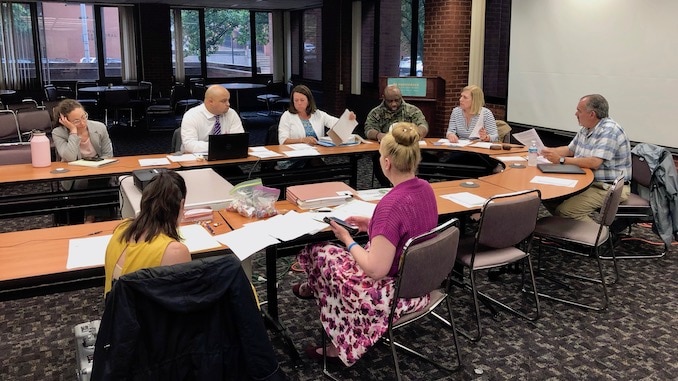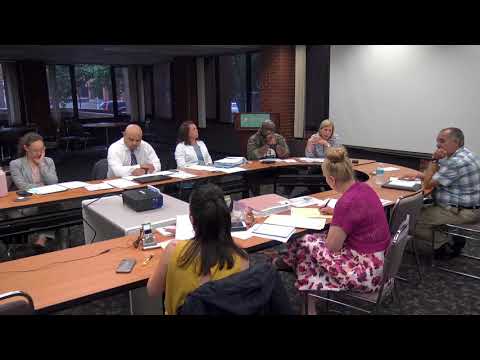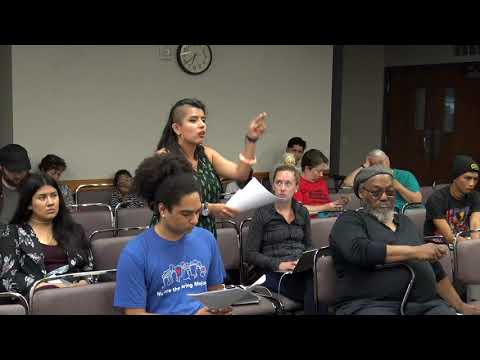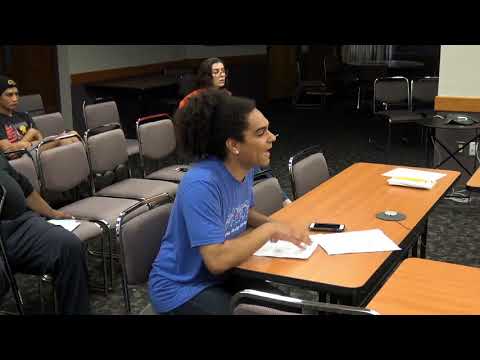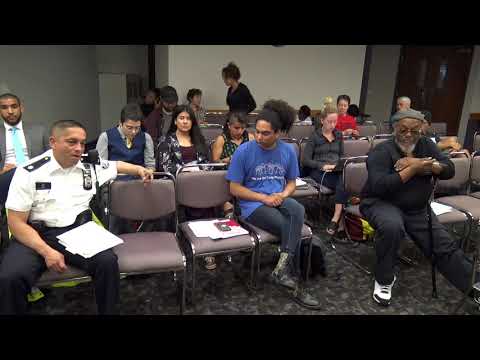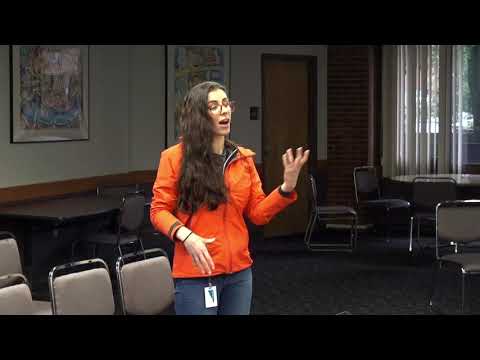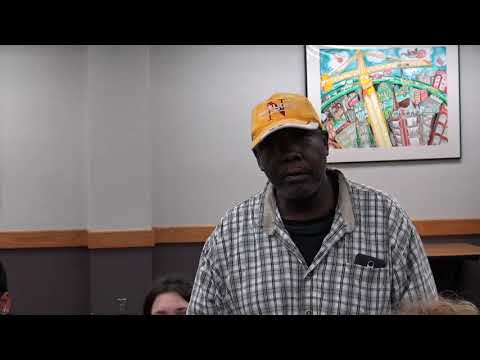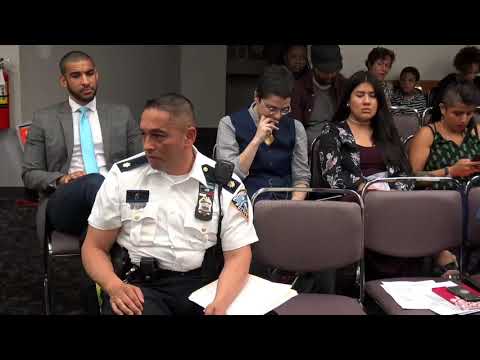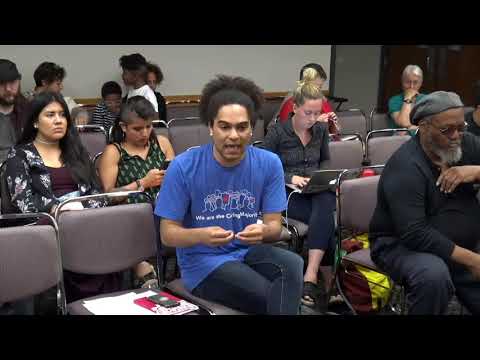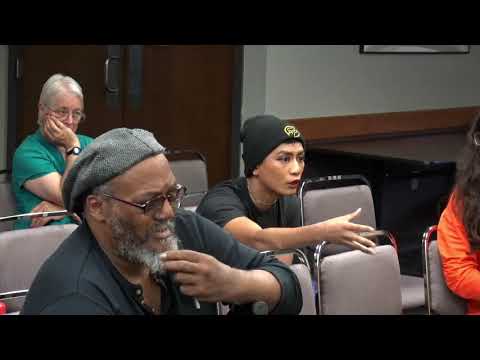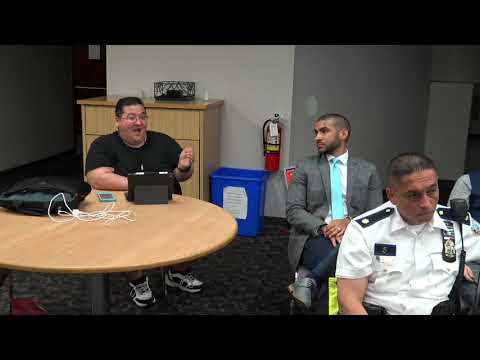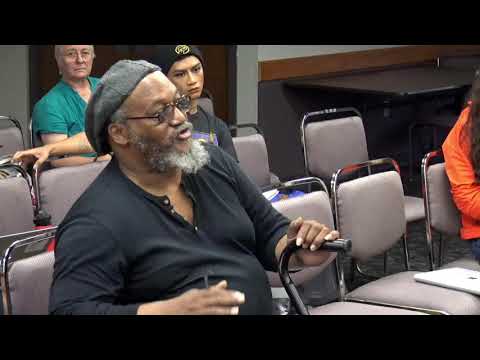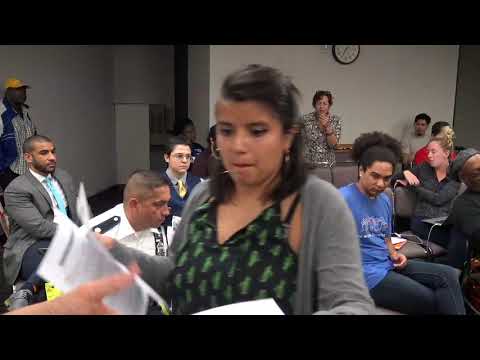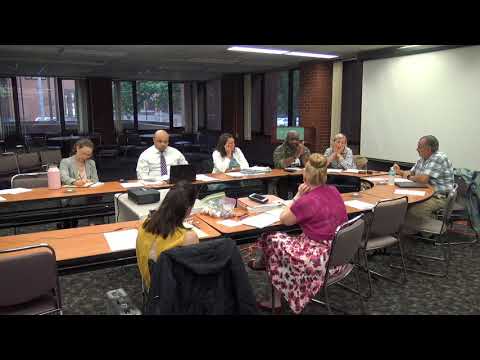Community members bring complaints about the Providence Police to a PERA Board without a quorum
The Providence Police Department has violated the Community Safety Act on several counts, say community members, adding that these violations are crimes and open the City to lawsuits. But PERA, the board established to deal with such violations, did not have a quorum and could not take action… The Providence External Review Authority (PERA) was re-established over two years ago
June 25, 2019, 8:58 pm
By Steve Ahlquist
The Providence Police Department has violated the Community Safety Act on several counts, say community members, adding that these violations are crimes and open the City to lawsuits. But PERA, the board established to deal with such violations, did not have a quorum and could not take action…
The Providence External Review Authority (PERA) was re-established over two years ago when the Providence City Council and Providence Mayor Jorge Elorza signed the Community Safety Act (CSA), aka the Providence Community-Police Relations Act (PCPRA) into law. Getting that legislation passed was a four-year effort on the part of community groups like the Providence Youth Student Movement (PrYSM) and DARE (Direct Action for Rights and Equality). The legislation is “one of the most progressive policing bills in the United States,” and one that “includes a broad range of measures that strengthen protections for youth, transgender individuals, people of color, and immigrants. The comprehensive scope of the ordinance makes it the first of its kind in the country.”
But at a Tuesday night meeting, it became clear that the CSA and PERA are not quite working as they should.
One of the key issues the CSA attempts to deal with is the Gang Database maintained by the Providence Police Department. Community members, mostly young people of color, were listed as gang members, often without their knowledge and often for reasons that were specious, racist or non-existent. And this isn’t a small problem. Being known as a member of gang can mean additional jail time for otherwise minor offenses and hurt a youth’s prospects academically and career-wise.
To deal with this, the CSA improved and codified Gang Database policies. Under the CSA, maintaining a Gang Database:
- Requires the Police Department to establish policies for determining if an individual should be added to the Gang Database
- Prohibits certain factors, such as race, from being included in the criteria for adding someone to the gang database
- Requires parental notification when anyone under 18 is added to the gang database
- Allows anyone over 18 to ask if they are on the gang database
- Creates both an administrative removal process and a formal appeal process for people who feel they were added to the database in error.
- Requires an annual audit of the gang database to identify any errors and make recommendations for improving its use
On Tuesday night, PERA was scheduled to meet to, among other things, hear from the community about violations of the CSA by the Providence Police Department, as pertains to the Gang Database. Only four members of the nine member PERA board showed up. The four who were present were expecting the arrival of board member Deborah Wray, an older woman and longtime community activist who had to take two buses to get to the meeting. Wray had never missed a PERA meeting before.
Board members who were in attendance include:
- Chair Alison Eichler, the president of the board of directors for Sophia Academy; Eichler has never missed a PERA meeting.
- Kenneth Cohen, a former Providence Police lieutenant; Cohen has missed about 25 percent of the PERA meetings.
- Susan DeRita, development officer at St Mary’s Home for Children; DeRita has missed about 12 percent of the PERA meetings.
- Machiste Rankin, a former correctional officer; Rankin has missed about 25 percent of PERA meetings.
Board members not in attendance were:
- Deborah Wray, as mentioned above, who has never missed a PERA meeting before.
- Dr Jorge Armesto, a forensic and clinical psychologist; Armesto has missed over 25 percent of PERA meetings
- Phanida Phivilay Bessette, a program manager for the Rhode Island Executive Office of Health and Human Services; Bessette has missed over 25 percent of the PERA meetings.
- Vice-Chair Nick Figueroa, executive director at College Visions; Figueroa has missed over 25 percent of the PERA meetings.
- Attorney Michael Fontaine, appointed by Mayor Elorza, has missed over 14 percent of the PERA meetings.
The meeting, scheduled to begin at 6pm, did not start until 6:30pm as everyone waited for the arrival of one more member for a quorum. That member never arrived. That half our was filled, toward the end, by a discussion between Chair Eichler and PERA’s legal counsel, with input from community members, about how to conduct any kind of a meeting, under the Open Meetings Act, that would be both legal and respect the time of the thirty members of the public who were in the room.
It is important to realize that the members of the community who made it to the meeting, in the pouring rain for a 6pm start time, were angry that the Providence Police Department had violated the CSA and that PERA, which was established to hold the Police Department accountable for such violations, was essentially dysfunctional. They were also angry that PERA, established to help protect their rights under the law, was essentially non-functional.
The first person to address the board was Vanessa Florez-Maldonado, the CSA Campaign Coordinator.
“This is the first meeting that y’all have had in months and the fact that there are not enough board members right now is a disrespect to the community,” said Florez-Maldonado. “I am so angry right now because this is supposed to be a community review board and there are members of this board that I have not seen in months. So what does that tell me? That tells me that those people are not taking serious this job. That’s telling me that y’all aren’t taking this seriously.”
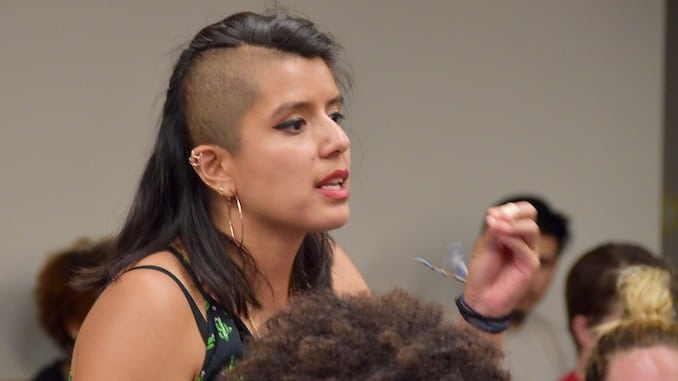
“Don’t say y’all,” said Chair Eichler, pushing back. “Because we’re here. If you want to talk to us, come on up, take a seat, go first, take two minutes, that’s fine.”
“But y’all are a board, right?” asked Florez-Maldonado. “Where is everybody else?”
“We’re the ones that are here,” said Chair Eichler. “So please just talk to us. If the purpose of this is to yell at us, for members that aren’t here, then that’s not constructive. I thought you had substantive issues for us to hear. If not…”
“We have lots of issues,” said Florez-Maldonado, “but I just want to voice first that this is really disappointing to see, that this is supposed to be a community review board but half of the members are missing. So my question is: What are we doing to make sure that this doesn’t happen again, because it really sucks that we’re all here in this room wasting our time with this because action could have been taken especially around a very illegal gang database criteria that’s currently being used right now…
“That’s what we really wanted to talk about today.
“These 15 points,” said Florez-Maldonado, referring to a document obtained through an Access to Public Records Request (APRA) by community activist Justice Gaines and reproduced below, “as much as 11 of them are in direct violation of the CSA which is law that seems to be kept broken over and over again by the Providence Police Department…”
The document in question is the Intelligence Assessment Database, which details a policy that is essentially the previous and now illegal Gang Database slightly rebranded. [That document is presented in full below, and in video 3 below, Justice Gaines goes into much more detail about the document.]
“So I’m wild up right now because I was hoping to see so many more people here, see board members here, and it just breaks my heart that they aren’t. So I’m yelling because I’m angry,” said Florez-Maldonado.
The newly revised Gang Database is being run by the Providence Violent Crimes Task Force. Florez-Maldonado said that the document, “is all heavily coded language to say the Providence Gang Unit has a Gang Database that is fundamentally illegal, that is against the CSA, that is something that [PERA] did not have a chance to view at all, as far as I know.
“We were not made aware until this APRA request that this database has been in operation since December of 2018!”
According to Florez-Maldonado, the Providence Police Department has maintained that there is no active Gang Database. When people tried to exercise their right, under the CSA, to be deleted from the database, they were told there was no database to be deleted from.
Also, said Florez-Maldonado, another report maintains that the Providence Police Department has listed the number of people challenging their inclusion on the Gang Database as zero. Florez-Maldonado said that she and the community knows that is not true, because they know that people have asked about their status.
“This policy that is in front of you was issued December 10th of 2018,” said Justice Gaines, a community activist. “It was not made public. It was not available on the website. It was not brought to PERA’s attention even though you have the power to review these policies. It was not told to anyone. The only reason we found out about this was because of an APRA request. and I don’t believe it was made public until [PERA Executive Director José Batista] actually informed the police that it wasn’t public, and that was only two weeks ago…
“So, for six months this was operating not publicly which is a violation of the Community Safety Act.”
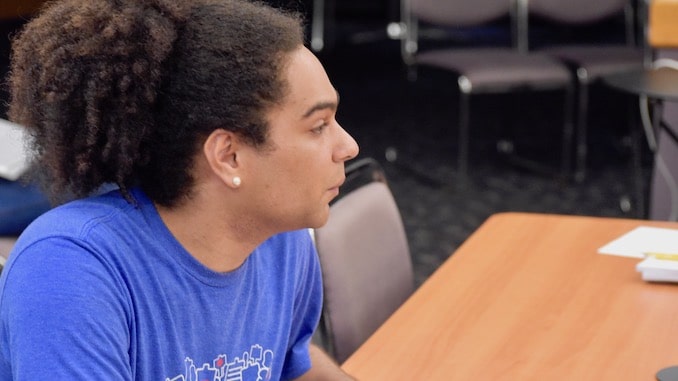
When the Providence Police Department issued their new Gang Database criteria in January 2018, nine of the 14 criteria were illegal, said Gaines. (See page three of the document at the bottom of this page.) After a letter was sent to Providence City Solicitor Jeffrey Dana, the illegal criteria were removed, but in the recently revealed document, “about seven of those criteria have been copied word-for-word,” into the new Gang Database guidelines, said Gaines, and others have only slight tweaks to their wording.
Gaines presented a long list of CSA violations by the Police, including lying and misleading the public and lying and misleading PERA.
“If they’ve been lying to us, that is a violation of the Community Safety Act, which is illegal,” said Gaines. “I can’t stress enough that this is all more than enough information to sue the City and to sue the Police Department because these are violations of the law and in the Community Safety Act there is accountability that says any individual who is subject to violations of this ordinance have the right to sue the City and the Police Department.”
Malchus Mills, a community activist and part of the CSA team wanted to hear from the Providence Police Department, represented in the room by Major Oscar Perez, who is in charge of community relations.
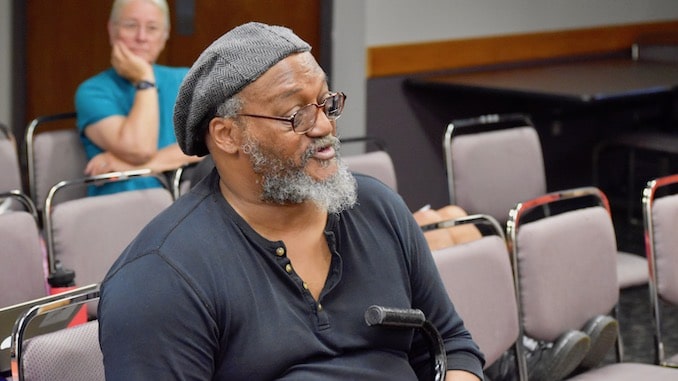
“It takes time to make changes, to adjust, to make sure,” said Perez. “You’re right, people have challenged whether or not they’ve been on the Gang Database and the report here says zero. Not sure why but it’s something that I’ll definitely look at and make sure we’ll get that done.”
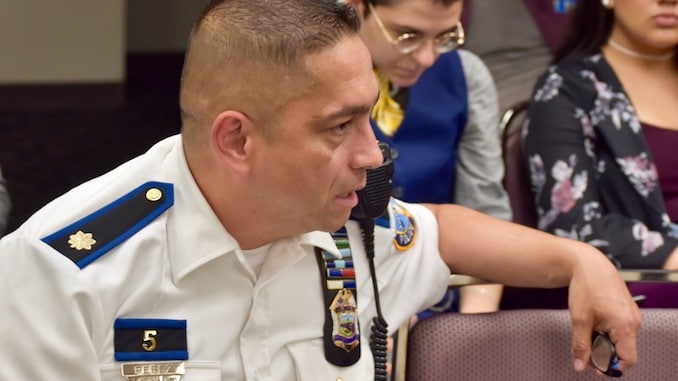
Karen, a community member, rose to tell the PERA board that the anger of the community should be understood and “absorbed,” and not pushed back against.
John Prince, a longtime community activist, expressed his concern that the new PERA board is on its way to being like the PERA board that fell apart 25 years ago after the shooting death of Providence Police Officer Cornell Young Jr.
Major Perez responded to Prince, saying that the Department has changed a lot in 25 years, and that the changes required under the CSA are taking time to implement, given that the law is only a year old.
“Just to clarify,” said Justice Gaines, “the CSA was passed over two years ago. There was a six-month grace period for the Police Department and prepare to get it together. I think it’s been a year and a half since everything in the CSA became legally enacted and the Department is not in compliance. The Department is not acting in good faith…”
“I just feel like PERA is very messy,” said Charles, a resident of Downtown Providence. “Since we began this info session one of the board members hasn’t even taken his phone off of him and looking at it.”
“I’m looking at legal stuff,” said board member Kenneth Cohen, looking up from his phone. “I’m listening as well.”
“We want you to be facing the community,” said Charles. “We want you to see our anger! We want you to see the passion that we have because why is it that only four people are here out of nine people? …
“You haven’t been here for the past couple of meetings as well,” said Charles to Cohen, who has missed 25 percent of the PERA meetings. “I haven’t seen you for a while. So what is that? What’s the responsibility there? Why do you have people that are not taking it seriously?”
Reporter Carlo Bacca noted that the Providence Police Department is frequently sued, costing tax payers a lot of money.
“It appears that if you have no money, or if you are of poor stature, or if you are at the lower end of the totem pole, no one wants to work with you,” said Malchus Mills, explaining the anger of the community. “We get that all the time. That’s why the anger is at the level that it is. We hope that maybe you guys can start to change that…”
“I’m not angry at PERA,” said Attorney Shannah Kurland. “I’m angry that the City has chosen to make it difficult for you all to succeed…
The City and the Police Department “are breaking the law,” continued Kurland. “They are breaking the law. They are illegal in terms of their behavior, in terms of what they’re doing and not doing. They’re trying to cover it up, not very well but they are certainly trying, by not posting their legal policy online, by not sharing it with you all for review the way that they were required to by law…”
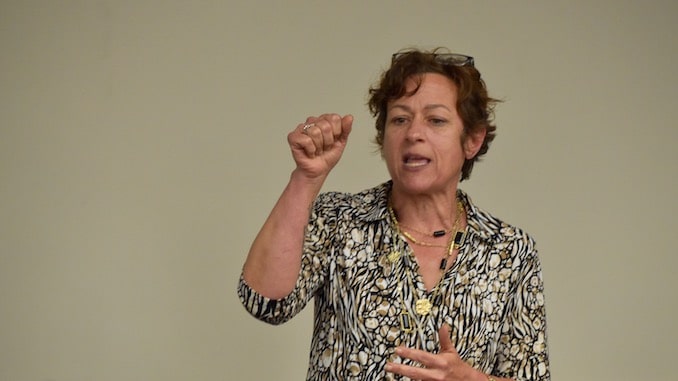
“The irony of it is that [for] our folks, all you have to do is look suspicious, ‘reasonably suspicious,’ do a couple of ‘furtive movements’ in a high crime neighborhood or God forbid 12 o’clock, one o’clock in the morning and all of a sudden you’re like charged with, you’re arrested, you’re cuffed, you’re taken into a holding cell, you’re denied to JP until the following morning and then you have to pay out money and go into court because somebody thinks you broke the law, somebody’s trying to make a case that you broke the law…
“Here, we have it on paper that [the Providence Police Department] broke the law,” continued Kurland. “What happens? Nothing.
“I don’t want to have to write complaint after complaint because they’re breaking people, because they’re assaulting people, because they’re illegally arresting people. I don’t want to have to do that. There are a lot of other things we could all be doing with our time.”
Here’s all the video of the wait time from about 6pm to 6:30pm, with discussions about the Open Meetings Act and what the board can and cannot legally do:
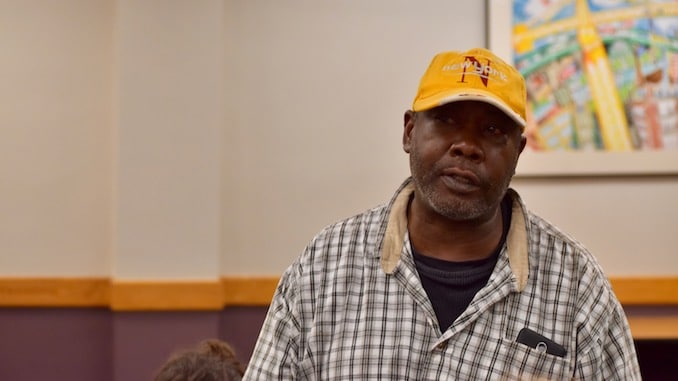
“Intelligence Assessment Database” aka the new Gang Database
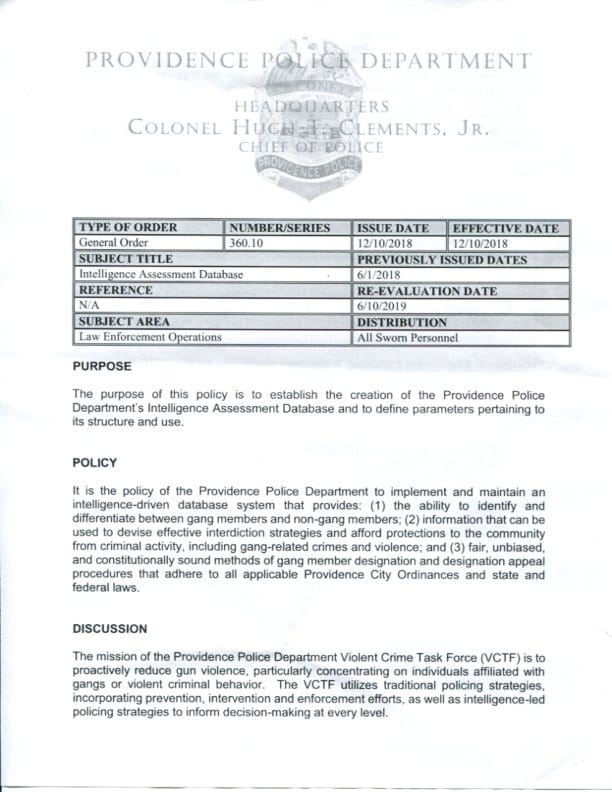
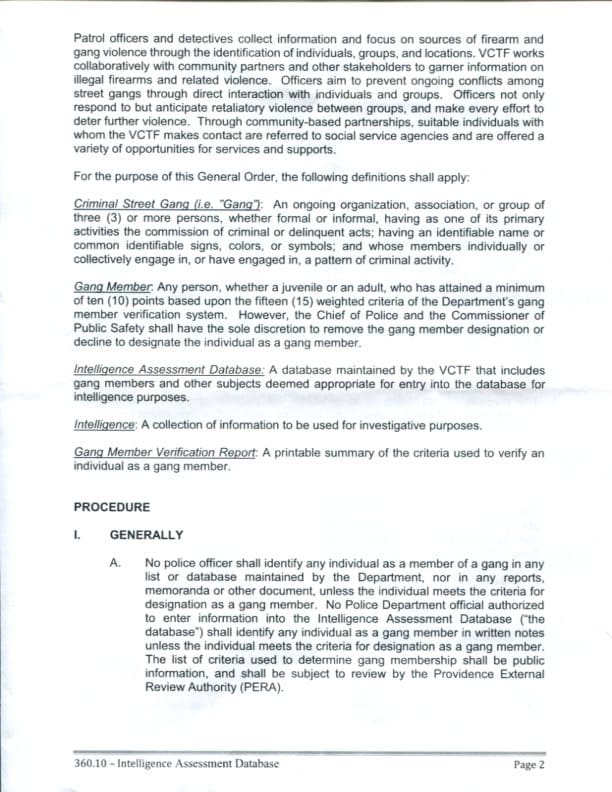
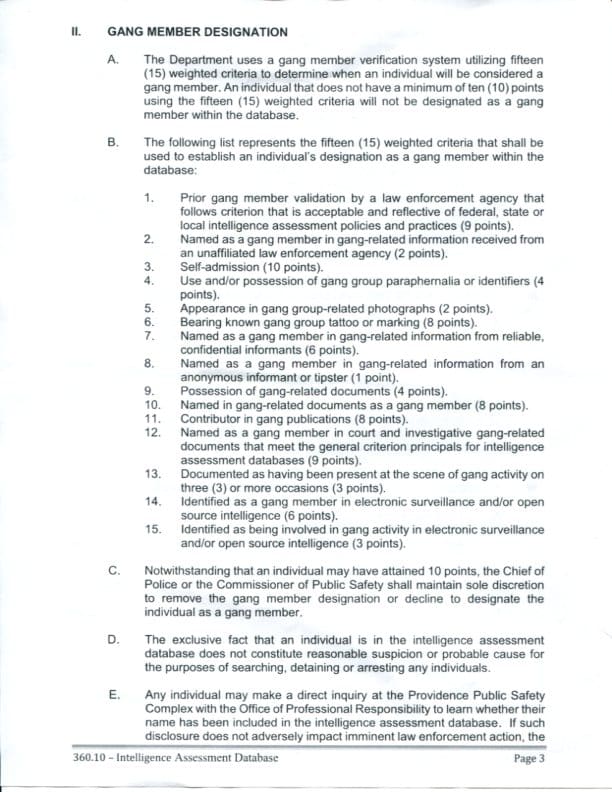
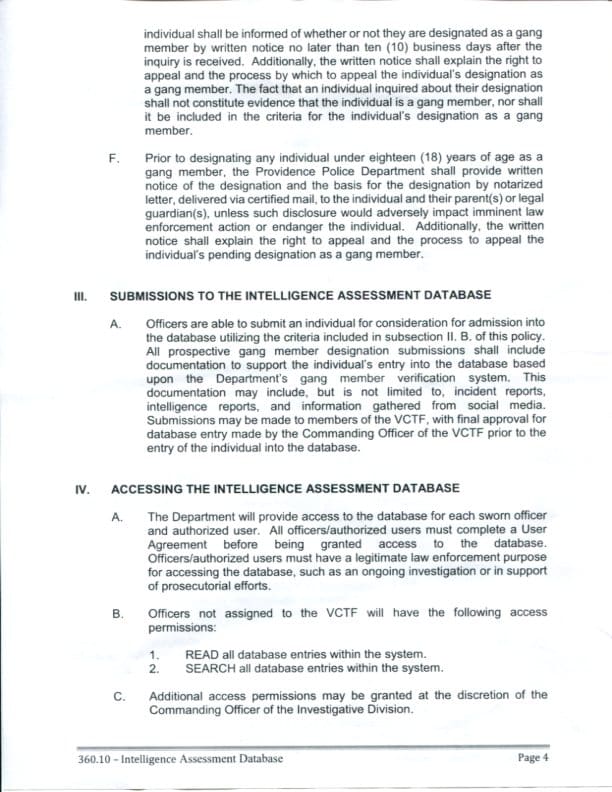
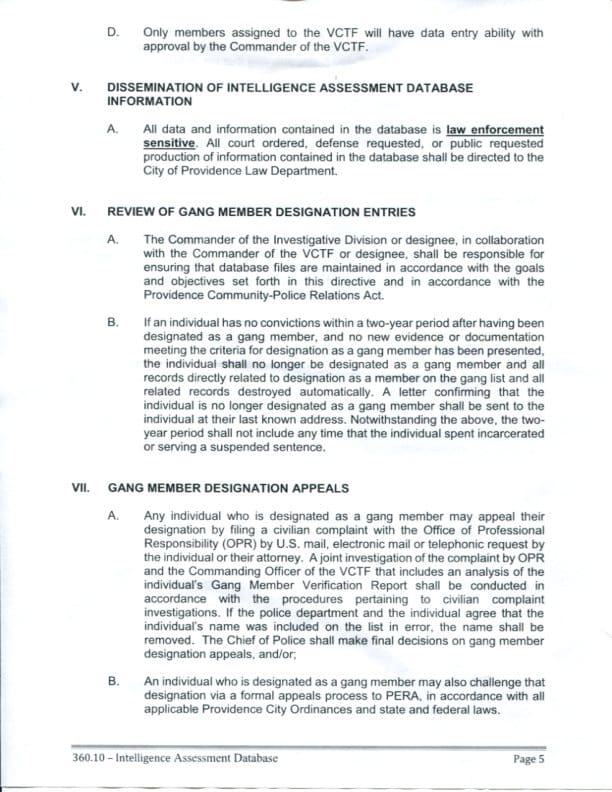
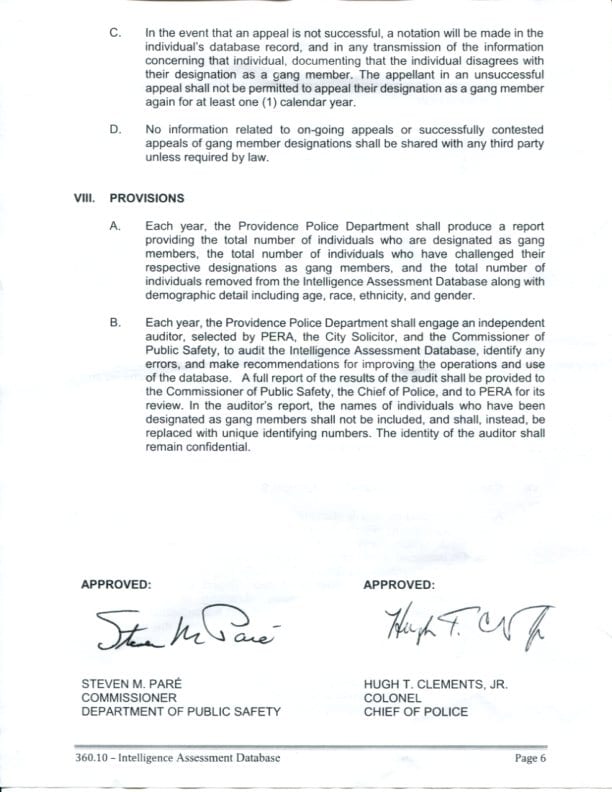
Letter to Providence City Solicitor Jeffrey Dana:
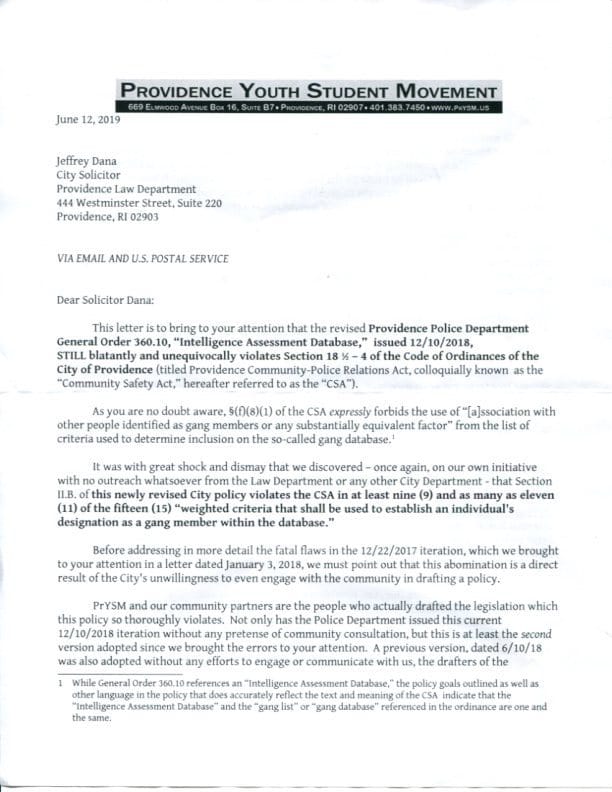

Uprise RI is entirely supported by donations and advertising. Every little bit helps:
Become a Patron!



